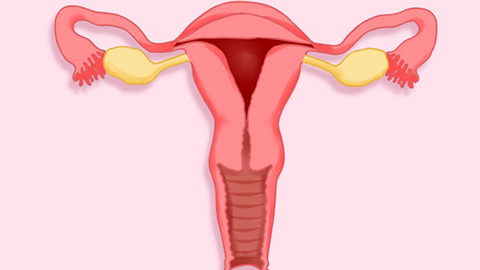What are the symptoms of uterine prolapse?
Uterine prolapse, medically termed as such, refers to the descent of the uterus from its normal position down the vagina, with the external uterine orifice reaching or descending below the level of the ischial spines, and in severe cases, the entire uterus protruding outside the vaginal opening. Generally, symptoms of uterine prolapse may include a sensation of pressure or pain in the lower back and sacral area, a vaginal bulge, abnormal urination, defecation difficulties, and discomfort during sexual intercourse. Detailed explanations are as follows:

1. Feeling of heaviness and pain in the lumbar and sacral regions: When uterine prolapse occurs, the descent of the uterus pulls on the pelvic floor tissues, causing pelvic congestion, which leads to a feeling of pressure in the lower abdomen, vagina, and perineum, often accompanied by pain in the lumbar and sacral areas. Symptoms tend to worsen after prolonged standing or physical exertion and improve with bed rest.
2. Vaginal bulge: This is one of the common symptoms of uterine prolapse. In mild cases, the bulge protrudes during standing, walking, physical activity, or increased abdominal pressure and can retract spontaneously when lying down. In severe cases, the bulge remains outside the vagina and cannot retract spontaneously, sometimes causing cervical or vaginal wall ulcers and bleeding due to friction.
3. Abnormal urination: Uterine prolapse is often accompanied by bladder prolapse (cystocele), which can cause difficulty urinating or urinary retention due to the prolapsed bladder compressing the urethra and obstructing urine outflow. Some patients may also experience stress urinary incontinence, where urine involuntarily leaks from the urethral opening during coughing, laughing, sneezing, or other situations involving increased abdominal pressure. This occurs due to weakened pelvic floor muscles and impaired function of the urinary sphincter muscle.
4. Abnormal defecation: If uterine prolapse is accompanied by rectal prolapse (rectocele), it can interfere with bowel movements, causing constipation and difficulty defecating. Patients may need to press against the posterior vaginal wall with their fingers to evacuate stools, as the rectum becomes stretched and twisted, impeding the passage of feces.
5. Discomfort during sexual intercourse: Uterine prolapse alters the normal anatomical structure of the vagina, causing vaginal laxity or shortening, which may lead to pain or difficulty during sexual intercourse, affecting sexual quality of life.
If patients experience the above symptoms, it is recommended they seek timely medical attention for professional diagnosis to determine the severity of the condition and receive appropriate treatment under medical guidance. In daily life, patients should avoid heavy physical labor, maintain regular bowel movements, and perform appropriate pelvic floor muscle exercises to alleviate symptoms.





